
Fallujah, 16 Rabiul Awal 1435/18 January 2014 (MINA) – A total of 28 civilians were killed and 200 others injured in the western Iraqi city of Anbar since the start of military operations there three weeks ago, a senior medical official told.
“Most of the casualties were caused by the army shelling of homes, government buildings and worship places in the city,” said Abdel-Sattar Lawas, director of Fallujah General Hospital. The tally, however, does not include armed tribesmen killed in clashes with army forces, he said.
The predominantly-Sunni Anbar province, of which Fallujah is a major city, has been rocked by violence since Iraqi security forces dismantled a months-old anti-government sit-in outside the provincial capital Ramadi in late December.
Also Read: Israeli Website Hacked: 462 Soldiers and 6 Generals Killed by Iranian Missiles
The sit-in was a protest against perceived discrimination by the government of Prime Minister Nouri al-Maliki, Anadolu Agency reported as quoted by Mi’raj Islamic News Agency (MINA).
Mohamed al-Bagari, spokesman of the anti-government protest camp in Fallujah, said that clashes were still raging between armed tribesmen and army forces in the city.
He said that two tribesmen were killed and ten others injured in clashes between the two sides on Friday.
Al-Bagari cited “difficulties” in moving the corpses of the victims to hospital, leaving residents with no other option but to bury their dead in their backyards.
Also Read: Global Trade Unions Demand End to Israeli Aggression in Gaza
The allied western invasion of Iraq
The Iraq disarmament crisis was one of primary issues that led to the multinational invasion of Iraq on 20 March 2003. Since 1980s, Iraq was widely assumed to have been producing and extensively running the programs of biological, chemical and nuclear weapons.
During the heights of Iran-Iraq War, Iraq had used its offensive chemical program against Iran and Kurdish civilians, also in 1980s. With the French and Soviet assistance given to Iraqi nuclear program, its primary facility was secretly destroyed by Israel in 1981.
After the Gulf War in 1990, the United Nations located and destroyed large quantities of Iraqi chemical weapons and related equipment and materials with varying degrees of Iraqi cooperation and obstruction, but the Iraqi cooperation later diminished in 1998.
Also Read: Turkish Intelligence Chief Meets Hamas to Discuss Ceasefire
The disarmament issue remained tense throughout the 1990s with U.S. at the UN, repeatedly demanding to Iraq allow inspections teams to its facilities.
Finally, this disarmament crises reached to its climax in 2002-2003, when U.S. President George W. Bush demanded a complete end to what he alleged was Iraqi production of weapons of mass destruction, and reasoned with Iraqi President Saddam Hussain to comply with UN Resolutions requiring UN weapons inspectors unfettered access to areas those inspectors thought might have weapons production facilities.
Since the Gulf War in 1991, Iraq had been restricted by the United Nations (UN) from developing or possessing such weapons. It was also required to permit inspections to confirm Iraqi compliance. Bush repeatedly backed demands for unfettered inspection and disarmament with threats of invasion.
In 20 March 2003, an multinational alliance containing the armed forces of the United States and United Kingdom launched an invasion of Iraq in 2003. After the war ending in 2011, a number of failed Iraqi peace initiatives were revealed. (T/P04/E1)
Also Read: Houthi Launch Another Missile Attack on Israel
Mi’raj Islamic News Agency (MINA)







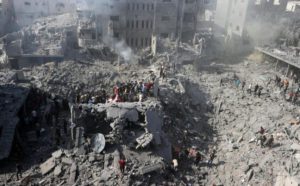

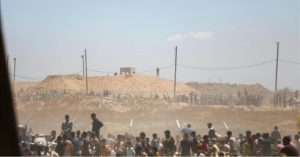

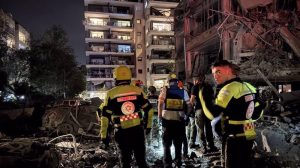
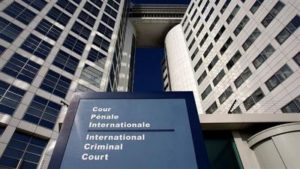
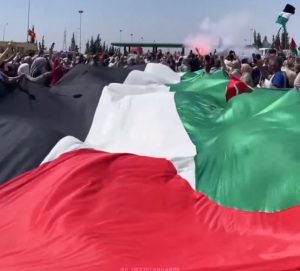



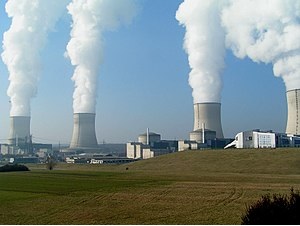
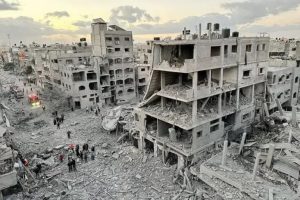
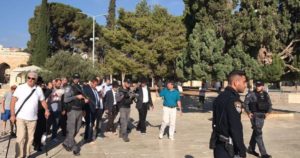


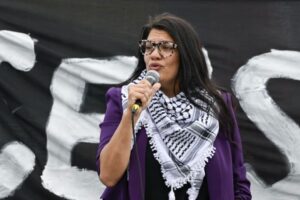



 Mina Indonesia
Mina Indonesia Mina Arabic
Mina Arabic